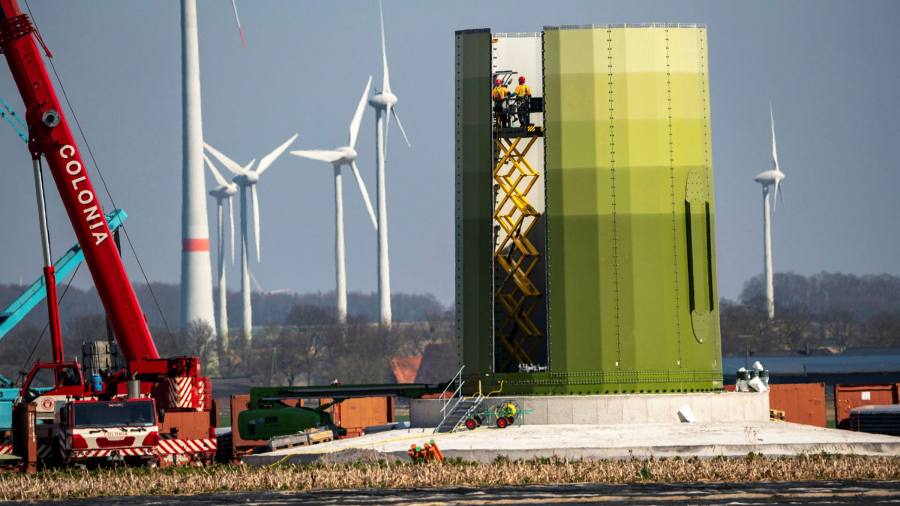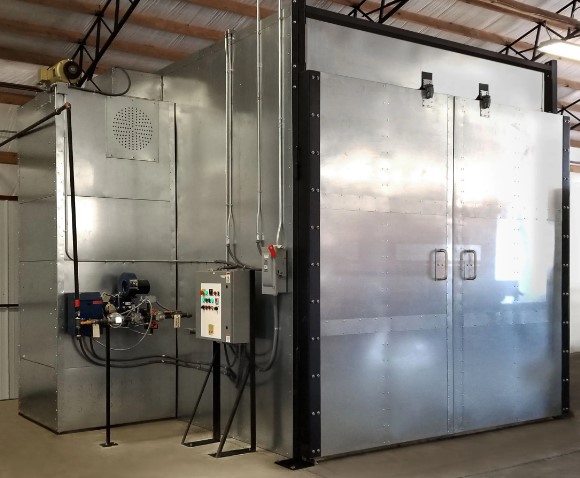John Kerry: Companies that quickly embrace green tech will clean up

The writer is the US special presidential envoy for climate
As we emerge from COP26 and take stock of our progress to avoid climate chaos, the world’s governments have committed to continue dramatically raising their ambition.
But to meet our goals, bold private-sector leadership is equally critical, in particular to decarbonise the industries where the transition to net zero emissions has barely begun. Solar and wind power alone cannot transform the global economy. Rapid progress in the so-called “hard-to-abate” sectors, including heavy industry and long-distance transportation, is also needed. These represent a third of global carbon emissions and, by 2050, could produce a majority.
A coalition of first-mover companies could harness their supply chains to scale up innovative breakthroughs, in turn driving down the cost of clean technologies in sectors where there are as yet no commercial alternatives to unabated fossil fuels.
The good news is that there has never been a better time to step up. In the US, the newly minted infrastructure bill makes historic investments in commercialising the clean technologies needed to reach net zero by 2050.
Leading companies are recognising the dual opportunity to take action on climate and seize competitive advantage. Like the proverbial cavalry, the first movers are coming. In Glasgow, we unveiled the First Movers Coalition, a partnership between the US state department and the World Economic Forum to provide a platform for leading global companies to fast-track clean energy innovation.
Already, 34 companies representing almost $6tn in market value have made ambitious pledges across steel, aviation, trucking and shipping. These are precise and verifiable purchasing commitments tailored to help innovators bring emerging clean technologies to market by 2030. While the pledges these companies made are small fractions of their total purchasing power, they are enormous compared with the current scale of clean technologies in these sectors.
Companies that make the First Movers Coalition steel commitment, for example, pledge that 10 per cent of their total steel purchases will be produced with virtually no carbon emissions by 2030. The first-ever shipment of fossil-free steel — using green hydrogen — only took place three months ago. But now major automakers and renewable energy companies — which use steel for wind and solar farms — have sent a powerful signal to investors and innovators to build many more clean steel plants that can sell to ready buyers.
In aviation, companies have pledged to buy advanced technologies that can reduce lifecycle emissions by 85 per cent or more compared with conventional jet fuel, without any offsets. This is unprecedented. Major airlines as well as businesses that buy flights, such as the world’s largest technology and finance companies, have committed to displace 5 per cent of their jet fuel demand. They’ve sent a powerful demand signal for innovations, such as clean synthetic fuels, next-generation biofuels and zero-emission propulsion — all critical for a net zero transition.
Initially, these products may be expensive, but by meeting their purchasing commitments in this decade, first movers can bring emerging technologies to a commercial tipping point and ultimately wipe out any premium cost compared with the polluting options.
Climate Capital

Where climate change meets business, markets and politics. Explore the FT’s coverage here.
Are you curious about the FT’s environmental sustainability commitments? Find out more about our science-based targets here
Some companies may see the appeal of being fast followers, deferring decisive climate action until the net zero transition is well under way. They risk their competitors building an insurmountable lead in building innovative and clean supply chains. Companies that stick their heads in the sand and continue to invest in business models that assume a net zero transition will never get going risk being washed away with the tide.
While many critical technologies are not yet commercially available, strong demand signals will turbocharge investments in innovation. A renaissance is already under way in the private investment landscape for the next generation of technologies, from producing clean hydrogen-based fuels to capturing carbon dioxide from the atmosphere. Private investment in early-stage clean technologies has already smashed the historical record, amassing $37bn in the first three quarters of 2021.
The transition to net zero presents the greatest economic opportunity since the Industrial Revolution: $4tn of investment in clean energy technologies every single year by 2030. Companies should seize this opportunity by propelling the shift — rather than being buffeted in its wake.
Twice weekly newsletter
Energy is the world’s indispensable business and Energy Source is its newsletter. Every Tuesday and Thursday, direct to your inbox, Energy Source brings you essential news, forward-thinking analysis and insider intelligence. Sign up here.








